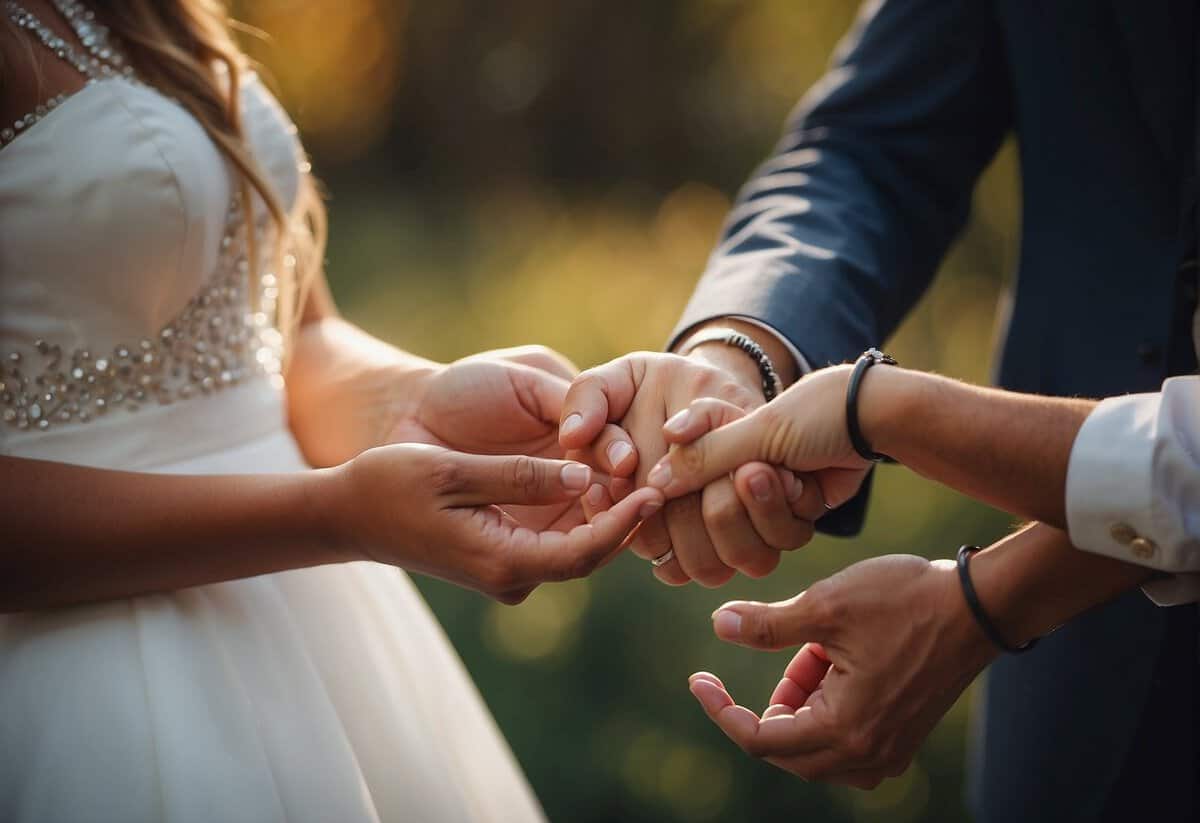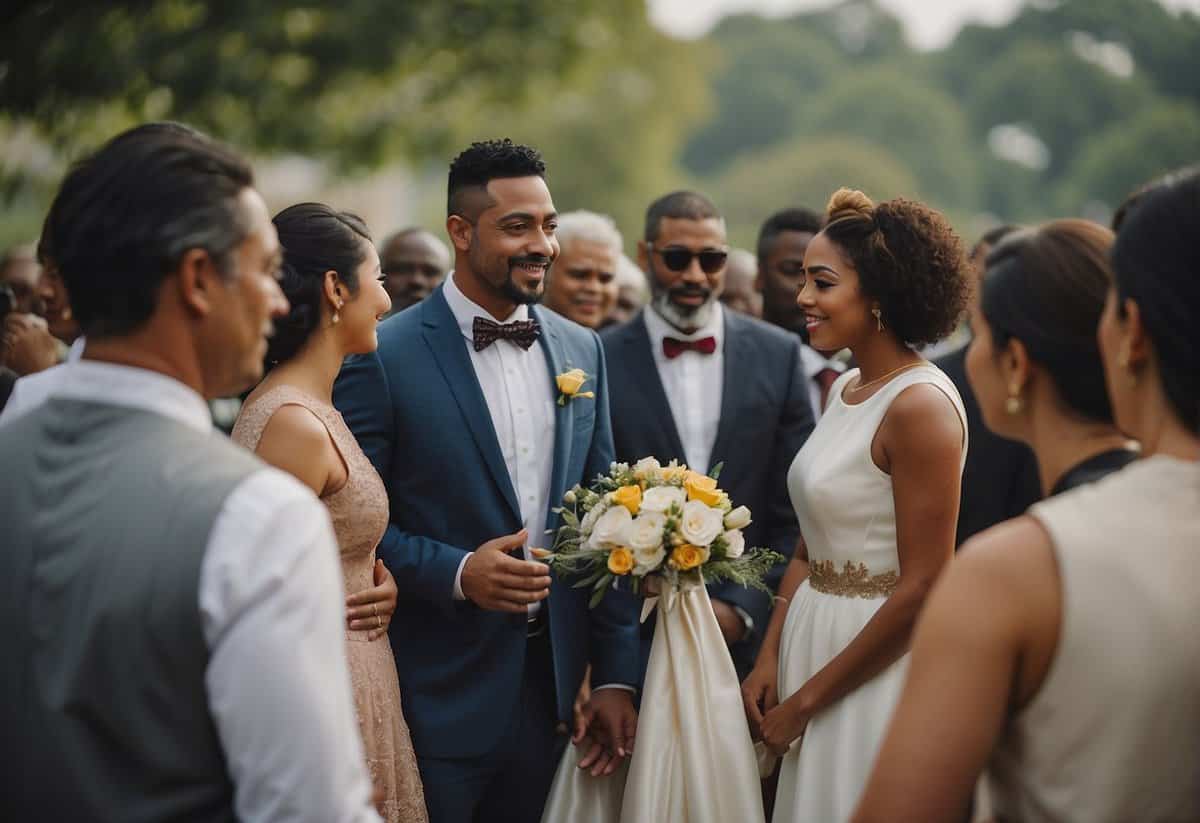What is the True Meaning of Getting Married? Unveiling the Bonds of Matrimony
The true meaning of marriage often eludes definition, even though it’s a term that’s widely recognized across various societies. At its core, marriage represents a union, typically recognized by the law, society, and oftentimes, religion. It’s a commitment that intertwines the lives of two individuals, joining their paths fundamentally and comprehensively. While its legal and societal implications are tangible—ranging from tax benefits to social recognition—the essence of marriage goes deeper, weaving together the emotional and personal dimensions of the individuals involved.

Understanding marriage requires peering into its multi-faceted nature. It’s not only a personal milestone but also a cultural and societal institution that has evolved over time. Culturally, marriage can signify the joining of families and the introduction of new kinship ties. Socially, it has implications for one’s status and often dictates certain roles and responsibilities. However, for the individuals getting married, it typically signifies love, commitment, and the beginning of a shared lifetime journey. The meaning of marriage can reflect a myriad of emotional undercurrents, including partnership, companionship, and mutual support.
Key Takeaways
- Marriage is a legally and socially recognized union between individuals.
- It signifies a personal commitment and emotional bond.
- The institution of marriage reflects cultural, social, and personal values.
Historical and Cultural Perspectives

You might find the story of marriage as a human institution as captivating as a tapestry, with each thread representing different customs, laws, and beliefs intricately woven together over time.
Evolution of Marriage Concepts
Marriage has evolved significantly from simply being an alliance between families to a complex institution shaped by religious, legal, and personal factors. Initially, the etymology of marriage pointed to property and ownership, but today, the concept has grown to encompass a diversity of forms, including same-sex marriage, common law marriage, and monogamous marriage. In early societies, polygamy, polygyny, and polyandry served strategic purposes, often related to wealth and inheritance. However, with changing times, many societies have shifted towards favoring monogamous marriages.
Marriage Across Different Cultures and Religions
Marriage rituals and rules vary widely across different cultures and religions. Here are several distinct practices:
- Christianity: Ranges from sacramental unions to modern-day interfaith marriages.
- Judaism: Stresses endogamy, with traditional emphasis on marriage within the faith.
- Hinduism: Often features arranged marriages; recognizes eight different types of unions with varying social acceptance.
Religions often navigate the delicate balance between endogamy, marrying within a social group, and exogamy, marrying outside one’s group, including interfaith, interracial, or even cousin marriages. In contrast, morganatic marriages refer to unions where partners of unequal social ranks are involved, limiting the rights of the spouse and offspring within the nobility.
Understanding these multifaceted dynamics gives you insight into just how deeply our identities and social structures are tied to the institution of marriage.
Legal and Social Dimensions of Marriage

Marriage intertwines legal frameworks and social expectations to shape your personal life. In this exploration, you’ll discover how marriage functions as a legal contract, delineates rights and obligations, and interfaces with family law.
Marriage as a Legal Contract
When you tie the knot, you’re entering into a legal contract. This means that both you and your partner agree to certain terms and conditions laid out by the law. For instance, a marriage license is required to formalize the union, and it signifies your eligibility and consent to be married.
Rights and Obligations Within Marriage
Once married, you gain a plethora of legal rights and assume various obligations. These include—but are not limited to—the right to:
- Receive tax benefits
- Obtain financial support from your partner
- Make medical decisions on your partner’s behalf
The obligations are equally significant and involve:
- The duty to support each other
- Sharing of financial responsibilities
- Mutual respect and protection of individual rights within the marriage
Marriage and Family Law
Marriage is deeply entrenched in family law, influencing decisions on divorce, separation, and matters involving children. Your responsibilities extend to:
- Providing support to children
- Equitable distribution of assets upon divorce
- Establishing custody and visitation rights
Family law also recognizes domestic partnerships and has provisions that address the changing views on gender roles in modern marriages. These legal facets underscore the importance of mutual respect and fairness in your married life.
Personal and Emotional Aspects

When you embark on the journey of marriage, it’s not just about the glitter of the wedding day but more so the intricate web of personal and emotional ties that you’ll weave with your partner. Love and commitment are the bedrock of this lifelong union, ensuring every challenge is met with resilience and maintenance.
Love and Commitment in Marriage
Love is the cornerstone of marriage, it is not just a spontaneous feeling but a complex set of emotions, actions, and beliefs associated with strong feelings of affection, protectiveness, warmth, and respect for another person. Commitment means choosing to stay with your partner through life’s peaks and valleys, and it reflects in every aspect, from emotional to pragmatic decisions. It’s a relationship where you find a balance between your own identity and being part of a couple, creating a new family unit as equal partners.
- Stages of Love in Marriage:
- Initial romantic attractions and emotions
- Deeper, more intimate communion beyond the marriage ceremony
- Long-term companionship, often referred to as companionate marriage
Challenges and Maintenance of Marriage
Marriage isn’t without its challenges; it requires ongoing work and the willingness to grow, individually and as spouses. Intimacy involves a more profound knowledge of each other, which comes with the challenge of respecting boundaries and expectations. Monogamy or the choice of an open marriage, same-sex marriages, or interfaith unions all come with unique sets of obstacles that require trust and a clear understanding of what both you and your partner desire from your wedlock.
- Key Pillars for Maintaining Marriage:
- Open and honest communication
- Mutual respect and faith in each other’s commitment
- Regular involvement of marriage therapists if needed
- Flexibility to adapt and grow with each other over time
Community and Societal Influence

In this section, you’ll discover how marriage extends beyond the personal and shapes the fabric of our communities and society.
Marriage and Community Dynamics
Marriage plays a pivotal role in fortifying community bonds, as it is often seen as a consensual and permanent partnership that integrates individuals into broader family networks. When you engage in a marriage ceremony, you’re not just uniting with your partner; you’re also reinforcing a traditional societal structure that values long-term, stable relationships.
Civil unions and domestic partnerships offer alternative forms of legal recognition, highlighting the shift towards a more inclusive understanding of family structures in your community. This shift includes recognition and protection for same-sex marriage, which, after historic struggles against discrimination, ensures equal marriage rights for all.
Societal Views and Changes in Marriage
Societal perceptions of marriage have evolved significantly. Dating and cohabitation have become normative stages in intimate relationships before making the transition into marriage, foregrounding marriage’s importance but also challenging its traditional primacy.
Your society’s views on the importance of marriage reflect diverse and sometimes conflicting ideologies. It is evident from the research at the Institute for Family Studies that perspectives on marriage can be politically polarized, with some viewing marriage decline as a negative trend. Meanwhile, the Pew Research Center found that a significant portion of Americans still see benefits in marriage.
Interfaith and intercultural marriages highlight an increased societal acceptance of diverse unions, reflecting your community’s expansion towards inclusivity. However, challenges persist, such as the issues surrounding child marriage and forced marriage, against which there has been a strong push for legal reforms to protect individuals, particularly minors, from coercive practices.
In contrast to temporary or informal unions, certain religious communities emphasize eternal marriage or misyar marriage, which adapt the concept of marriage to fit specific spiritual or practical needs, showcasing marriage’s varied interpretations within different cultural contexts.
As you navigate through your own community and societal contexts, understand that marriage is a complex institution interwoven with legal, cultural, and personal significance that continues to evolve in step with changing societal values and laws.
Frequently Asked Questions

In this section, you’ll find answers to some of the most common inquiries surrounding the significance and understanding of marriage from various perspectives.
What are the core principles of marriage as described in the Bible?
The Bible outlines marriage as a covenant grounded in commitment, love, and faithfulness. It’s perceived as a lifelong union where spouses are expected to honor and support each other.
How does sociology interpret the role and significance of marriage?
Sociologists view marriage as a social institution that is crucial for the stability and structure of society. It facilitates the establishment of families, which are the basic units of social organization.
What does marriage symbolically represent to a man?
Marriage often symbolizes a transition into responsibility and partnership for a man. It represents a commitment to protect, provide for, and be present in a lifelong partnership with another person.
In what ways does marriage hold importance for a woman?
For a woman, marriage may symbolize security, partnership, and the affirmation of love. It can represent a shared journey that encompasses both personal growth and mutual support.
Can you summarize the historical reasons behind the institution of marriage?
Historically, marriage has been a means to secure alliances, manage property and inheritance, and provide a structured environment for raising children.
What are considered to be the foundational promises made during a marriage ceremony?
During a marriage ceremony, foundational promises typically revolve around love, honor, and respect. They often include committing to support one another in various circumstances and to work together as partners throughout life.


